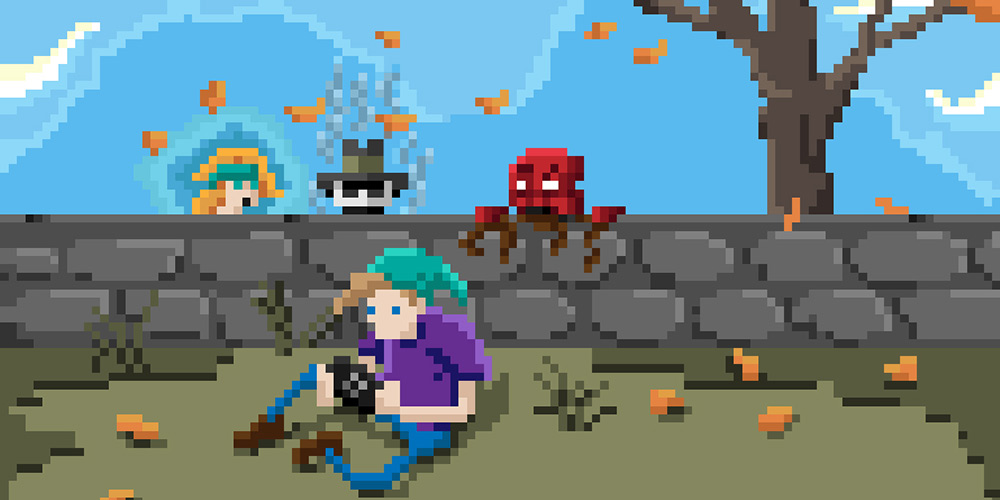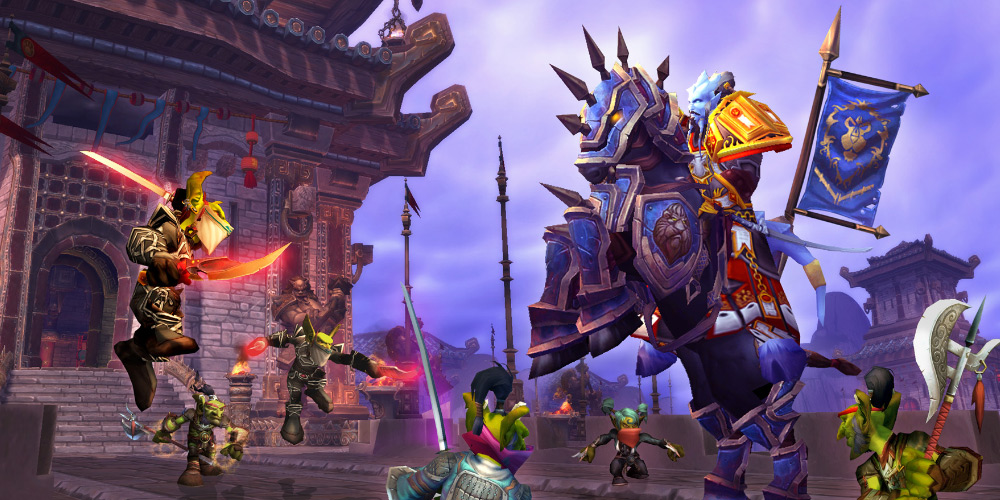My kids are smarter and more creative; my children retreat into their virtual worlds and become violent offenders. Two views on computer games, as they cannot be more different. But both do not seem to be true. The media educator Dr. Konstantin Mitgutsch tries to clean up with many of these myths in an interview. Together with other experts from academia and journalism, he speaks about games and their potential impact on our society at the GameStage@FamilyDays on SAT November 16, 2013, starting at 2 PM at the Ars Electronica Center Linz. The day before, on FRI November 15, 2013, beginning at 6 PM, interested people can try out computer games and different genres that are released only for people aged above 18 years at the GameStage@AEC.

A recent study by the journal Nature says that computer games make high demands on complex cognitive and motor skills. Games may be seen as an intensive training of different skills. Are we getting smarter through playing – what do you think?
I would say, no. We are getting neither wiser nor stupider. There are now of course certain complex cognitive and motor skills that are promoted through games. The key point for me is that many of these skills are developed here, are not part of this kind of wisdom that we would understand today. Actually, many special skills have relatively minor importance for normal citizens. And this is one of the big misunderstandings that occur in games in a positive sense. It is first of all depends on the genre of the game. There are games where my attention ability is highly developed, where my motor skills are greatly developed, or my strategic thinking – but a very important aspect that often comes up short is that of the transfer. Because the skills that I am learning with gaming do not have to be transferred one- to-one to everyday life. In most cases, this cannot be done. But it is also true that the game was never intended to do so.
The good news for those who are afraid that the games create violence: The transfer is not one to one. And vice versa, but also the bad news for teachers, parents or the public discourse: It is not true that we are getting more intelligent through games. Both is shortened. The point is that some skills can be developed that can be possibly used for example for surgeons. We do not automatically get more aggressive when we play a shooter. But I have to say: Most shooter gamers create an incredibly high level of expertise on military knowledge while they are playing. So they know exactly which kind of weapon you can use from which distance. It is an expertise that most people only get through military training or as a hunter. So that’s a clear example. Of course, there are people who develop games exactly for this transfer – e.g. they develop a “World of Warcraft” with mathematics. But from my own research it often shows that this transfer to reality does not occur as expected.
The Norwegian bomber Anders Breivik , responsible for the death of 77 people on the Norwegian island of Utoya stated to have prepared for his attack with relevant computer games before. In many war games teenagers play the role of soldiers and blow up the supposedly evil with heavy weapons in realistic-looking 3-D worlds. Violence is virtually allowed, and banned in reality. The fear that the border between the two worlds blurs is big. What would you say to concerned parents?
I think the answer is already included in your question. If I commit a crime, as it was in Norway, we are dealing with someone who has mental health problems or a disease. The question is, what can I actually train with a game that can help me in such an attack? Yes, of course I can learn which weapons are appropriate. I can also play a shooter in the military sector, imagine a certain scenario and virtually re-contextualize this scene. Then I can work out some things but they often have to do with strategic thinking and with knowledge of weapons, distances, and so on. What is completely lacking here is the crucial point of aggression and motivation to do anything at all. The game does not provide this; the player puts it into the game.
It is generally assumed that normal players – most young people in Austria – can differentiate very well between the virtual game and reality. The gamers actually do not play like they would act in reality. There are now quite a few people – the research argues differently – who can be classified as risk players. These are people who come from a violent environment; they have mental disorders and already have a difficulty to differentiate certain aspects of reality. These people can use games in order to prepare for such violence. Here, however, people are using games as tools. It’s not the games that make these people to do so. If these games did not exist, they would look for other media to prepare for such acts and to live out their fantasies of aggression.
It is very important to realize that parents should not be worried. So when you open the door and you see a great weapon that is aimed at someone while blood splatters: Most shooters that look very violent from the outside, are strategy games – they are chess games with a new surface. I do not learn sadistic acts, I learn strategic behavior in an extreme situation with these games. Why do people actually love to play shooter? It is so to speak, the simplest medium to bind attention. Hardly anything in the game is more exciting than to fight for his or her life. Like in literature or movies. There are several studies that deal with whether or not people get aggressive. And I can say to you – after reviewing the most studies of them: You do not know. It is very unclear. Thus, there are studies that say one thing, other studies say the opposite. Very important for me is that there is not a single study that says that people would not be able to differentiate between reality and virtuality.
What do you actually do, if you have a person that could be a “risk player”, when the society says, attention, he or she can not differentiate? I notice it myself when I talk to psychologists who have such people in treatment: The tell that you cannot do anything about it. It is clear that people with an interest in violence are also more likely to have interest in games that have violence on the topic. In short: No, parents do not have to fear. All young people except those with mental disorders may differ between virtuality and reality. Most shooter games are strategy games.

With what great myths have computer games in the year 2013 to deal with? And why should we trash them?
This is very different. There are two fields: those of fear mongering and the negative mythologizing of computer gaming and those of complete overconfidence. Funnily both sides go pretty hand in hand. First, the negatives:
The myth that all gamers are male youthful 13- year-olds, dressed in black robes playing shooter games. This is a myth which has to be trashed. The average computer player is 30-40 years old, is still 60% male. And nowadays we play almost all, because we are playing solitaire on the phone, we just play somewhere a little Tetris. It is also a strategy game when I run after points that I get on my store card, or if I run with Nike shoes and the times are compared on the Internet with others. Computer games have taken a very strong entry into our lives and culture and have to be understood in this way.
Another myth is that shooter make violent. No, that’s not true – that’s too simple, if you would see it like that.
It is still considered as a myth that games make addictive. There are games that actually reward times and there are people with different personality, who are interested in distracting themselves. If these people encounter games with time structure, it can lead to an excessive playing. It is important that the reason for this always comes from the outside of the living world. The game becomes a means to an end to escape from something. But the original problem is the need to escape and not the means of escape. This is very important to make this quite clear.
Further mythology still buzzing around is the idea that computer games are shooters and sports games only. That’s not true, just as before mentioned, computer games are already present in all ways of our life. They have now reached our smartphones; there are small solitaire games, and so on. Computer games are part of our life in so many different ways.
But this leads us to a positive myth: Games do not make us smarter, but they are still a form of recreational pleasure and the transfer into reality is not as simple as it might seem.
Another myth is the idea that games are changing our schools and revolutionize our education system. This is not the case. I notice for example that games have great learning potential, but then in such a school system it hardly rises, because the structures are so different. Hardly a game operates during 45 minute intervals. This aspect should not be overlooked.
From my perspective, the myth of the game is still interesting: As I have sayed before, it is often spoken of “the game” and “the player”. It is very important to realize that there are very different games and very different gamers. Computer games can be a part of our experience that we make in life, but they are not the sole extent. I think this aspect is occasionally overlooked that the game is neither the negative nor the positive influence.
One myth, which I also would like to clean up, is that the computer game industry is a sparkling creative place where people are able to self-actualize. I must say that the game industry is like all other industries driven by money. It is not so much innovative as it could be. Many titles are repeated, there are always certain stereotypes and also frightening still many repeated stereotypic images of women in games. Or also the aspect of hate speech that is currently a major problem when players talk to themselves. Much what happens in the gaming industry has just very little to do with innovation, openness and creativity. It’s all about strategic calculation. Of course there is also an indie industry, small developers who make very creative products or create very exciting art projects – that should not be forgotten anyway.